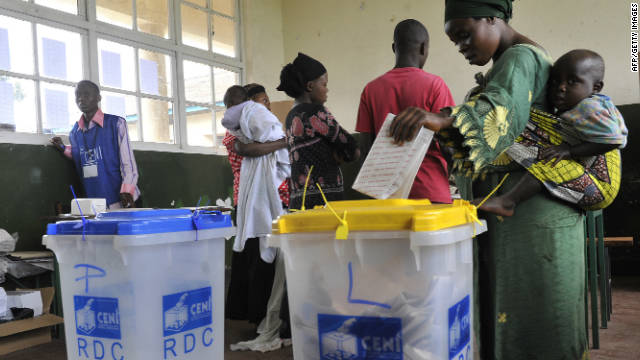Ahead of polls in DRC, aid agencies warn against laxity

By Fauxile Kibet
As the world turns its attention to the upcoming elections in the Democratic Republic of the Congo this Sunday, humanitarian agencies are warning against losing sight of the millions of Congolese men, women, and children whose humanitarian needs have yet to be met.
The Norwegian Humanitarian Council NRC has warned that regardless of the outcome of the election Sunday, the DRC leadership will have to tackle the increasing humanitarian needs and will largely depend on the international community for assistance.
“Regardless of the outcome of the election Sunday, the country and its leaders will have a challenging job ahead to be able to tackle the daunting humanitarian needs, and will depend on substantial support from the international community to avoid unnecessary loss of lives,” said Pauline Ballaman, Country Director for the Norwegian Refugee Council (NRC) in the Democratic Republic of the Congo.
According to the humanitarian organization, this year alone, 1.4 million people have been forced to flee violence in DR Congo and that by the end of 2017, there were already a total of 4.5 million people displaced in several parts of the country.
The NRC further says that the waves of displacement are mainly due to the re-emergence and escalation of violence around Congo’s eastern frontier, in Ituri and the Kivus. More than 13 million people depend on humanitarian assistance.
“We must be careful that we don’t paint a rosy picture here in Congo,” explained Ballaman. “Our teams on the ground see horrific violence daily and we are often struggling to keep up with the humanitarian needs. The scale of the crisis and the lack of sufficient support leave many people in need without necessary assistance.”
Compounding the complex crescendo of conflict and humanitarian needs, the NRC adds, is the second largest Ebola outbreak in world history, which threatens to spread further into eastern Congo if not contained.
The outbreak has already cost the lives of hundreds of men, women and children.
The Humanitarian organization also observes that although there has been a security improvement for some pockets of the country such as the Greater Kasai Region and Tanganyika province where at least 1.5 million people have returned to their places of origin, security incidents have increased by 33 per cent between 2017 and 2018, according to the International NGO Security Organization (INSO).
“There have been over 530 security incidents targeting NGOs since the beginning of the year, translating into two incidents against humanitarian organizations per day.”